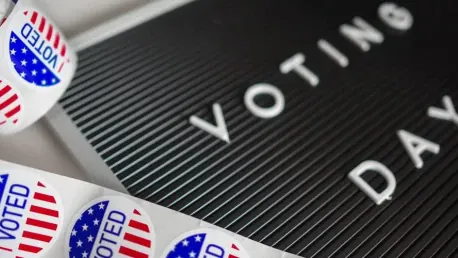Arizona is once again at the epicenter of the national debate over immigration as voters prepare to decide on Proposition 314, a measure aiming to empower state and local police to arrest migrants suspected of entering the state illegally from Mexico. This proposition, if passed, would represent a significant shift in enforcement authority, traditionally held by federal agencies. Proposition 314 will not take immediate effect and hinges upon the enactment of similar laws in other states. Arizona’s history of controversial immigration laws is both long and complex, driven by an enduring frustration over what many perceive as federal inaction.
Historical Context and Legislative Efforts
Proposition 314 is not an isolated effort but rather the latest in a series of legislative attempts by Arizona to address illegal immigration. This history includes the 2005 immigrant smuggling ban, the 2007 law targeting employers hiring unauthorized workers, and the highly contentious 2010 law requiring police to verify the immigration status of individuals suspected of being in the country illegally. Each of these measures has sparked significant legal battles and public outcry, often involving accusations of racial profiling and civil rights violations. Arizona voters have oscillated between supporting and rejecting various immigration-related initiatives, highlighting the deep divisions within the state on this issue.
The controversial nature of these past laws, particularly the 2010 “show me your papers” law, has had lasting implications. Those legal and societal debates set the stage for the challenges Proposition 314 may face should it pass. Supporters of the proposition, primarily GOP lawmakers, assert that this measure is a necessary step to secure Arizona’s border in light of what they describe as the Biden administration’s failure to control illegal immigration. They cite recent reductions in illegal crossings, attributing them to the administration’s stricter asylum regulations. However, this perspective is far from universally accepted, as opponents question the true efficacy and fairness of such measures.
Proponents’ and Opponents’ Viewpoints
Advocates for Proposition 314 argue, often passionately, that the measure is critical for state security and border control. In their view, the federal government has not done enough to stem the tide of illegal immigration, leaving states like Arizona to fend for themselves. The recent decline in illegal border crossings, they argue, is indicative of the need for robust enforcement measures, such as those outlined in Proposition 314, to maintain and enhance border security. They emphasize that without these measures, Arizona remains vulnerable to the challenges and dangers posed by illegal immigration.
Opponents, however, offer a starkly different view, asserting that Proposition 314 could inflict substantial harm on Arizona’s economy and exacerbate racial profiling issues, particularly targeting Latinos. They draw parallels to the infamous practices of the Maricopa County Sheriff’s Office under Joe Arpaio, notorious for its documented instances of racial profiling. The opposition warns that adopting such measures could tarnish Arizona’s reputation, leading to costly legal battles and compliance challenges. These critics are concerned about the broader social and economic consequences, including potential impacts on labor markets and the state’s overall economic health.
Broader Implications and Federal Precedents
The debate over Proposition 314 reflects a larger national battle over state versus federal authority in immigration enforcement. Arizona is not alone in its efforts; states like Texas, Iowa, and Oklahoma have passed similar laws, only to see them blocked by federal courts. Proposition 314, notably, will not be enforced until a comparable law has been in effect in another state for 60 consecutive days. This provision underscores the complexity of implementing such measures in the face of potential federal legal challenges. These legal precedents could significantly shape the future of state-level immigration enforcement policies.
In addition to addressing immigration enforcement, Proposition 314 includes immediate provisions aimed at other pressing issues. These include penalizing the sale of fentanyl resulting in death with up to ten years in prison and criminalizing the submission of false documentation by noncitizens for employment or benefits. These provisions highlight the multifaceted nature of the proposition, extending beyond immigration and into broader criminal justice and public health concerns. This complexity adds another layer to the already heated debate, as voters weigh the potential outcomes of the proposition on multiple fronts.
Conclusion
Arizona has once again become the focal point for the national debate on immigration with voters set to decide on Proposition 314. This measure aims to give state and local police the authority to arrest individuals suspected of illegally entering Arizona from Mexico. If passed, it would mark a significant change, shifting some enforcement powers traditionally reserved for federal agencies to local entities. The proposition will not take immediate effect, contingent upon similar laws being enacted in other states first. Arizona’s complex and controversial history with immigration laws highlights a longstanding frustration with perceived federal inaction on border control issues. This proposal reflects the ongoing tension between state and federal roles in immigration enforcement, and it’s poised to rekindle discussions on how best to manage and secure the border effectively. Voters’ decisions on Proposition 314 could significantly influence not just local policy but also the broader national conversation on immigration reform.









